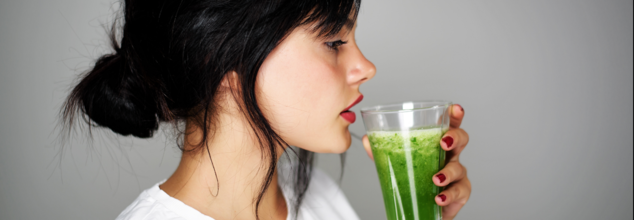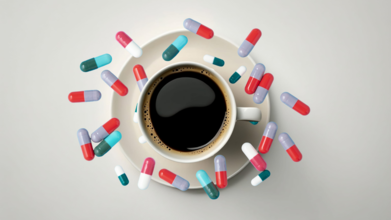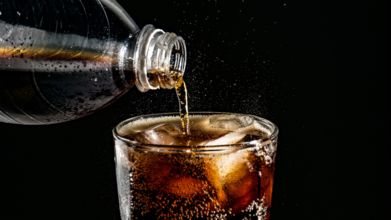- Health Conditions A-Z
- Health & Wellness
- Nutrition
- Fitness
- Health News
- Ayurveda
- Videos
- Medicine A-Z
- Parenting
- Web Stories
4 Post-Diwali Detox Drinks To Recover From Festive Indulgence

4 Detox Drinks to Help You Recover from Festive Indulgence
Diwali is the time to celebrate, rejoice, and indulge. With dazzling lights, rich, traditional sweets, and so much more, the festive season is sure to fill our homes and hearts with warmth. There are a mix of heavy meals, fried treats, and late-night munching sessions along with this joy and laughter. After all this celebration, the body feels a little overwhelmed and sluggish, reminding us it is time to hit the refresh button. That is where detox drinks come into the fray as a natural way to cleanse, reset, and rejuvenate.
Well, after the Diwali celebrations last week, we did have our fair share of feasts, sweets, and party snacks. The Diwali indulgence is not really just for one day. For most people, that week is marked by a calendar of snacks, desserts, and late nights. Although the festive spirit is awesome, we cannot forget how it takes its toll on our health. A post-Diwali slump normally takes shape as bloating, discomfort in the digestive system, and fatigue.
The festive time is the time when cities like Delhi celebrate Diwali with a grand show, making air quality take a significant hit with the air quality index taking a nose-dive. Increased air pollution following the festival makes breathing issues much worse and affects energy levels, weakens the immune system, and more importantly, the cleansing process that is important not just for the gut but also overall wellness in such conditions.
Here are some refreshing detox drinks that can help you recover, revitalize, and feel lighter after Diwali:
1. Lemon Water
This is probably one of the most simplest and most effective detox drinks: a glass of lukewarm lemon water. Drinking lemon water in the morning is easy to be added to the daily routine. This is one classic drink that has loads of Vitamin C to help strengthen the immunity system and helps build good skin. It can help alkalize the body, clean out toxins, and boost metabolism. This is a gentle cleanse that helps to detoxify your system after weeks of holiday goodies.
How to Make: Squeeze half a lemon into lukewarm water and drink on an empty stomach.
2. Honey, Lemon & Ginger Tea
This three-ingredient drink is another powerful choice after post-Diwali detoxification. Lemon and ginger are two well-known cleaning agents while honey brings its sweetness into the mix along with its medicinal benefits. Ginger does have effects that reduce bloating, promote digestion, and reduce inflammation. Honey is known for skin care and fat burners so this is going to be a great one for holistic cleansing.
How to Prepare: Steep a teaspoon of honey, a few drops of lemon juice, and a small piece of grated ginger in a cup of hot water for a few minutes before drinking.
3. Green Tea with Lemon
Another detox drink is green tea, which is perfect after binge-eating. Rich in antioxidants, it helps the proper functioning of the liver, which detoxifies the body. Adding a few drops of lemon juice would enhance its detoxifying powers as lemon would help break down fats and improve metabolic rate. This drink also has the function of combating fatigue, making one mentally alert, and aiding in losing weight.
How to Prepare: Boil one glass of milk. Add 1 tsp turmeric, and squeeze some fresh ginger juice. Have this twice a day to prevent any arthritis, coughs, cold, or infections.
4. Haldi (Turmeric) Tea
The well-known Ayurvedic medicine and spice "haldi" in English is turmeric, which has healing and cleansing powers. The tea of turmeric can be considered as not just anti-inflammatory but also antibacterial, and thus helpful during the polluted air, the respiratory system would need protection. Curcumin inside turmeric acts as an antioxidant, cleansing the liver, so it's that detox drink after the fest of rich foods.
How to Prepare: Add a half teaspoon of the powder to hot water; you can even add black pepper for greater curcumin absorption and sip this mixture gradually; it will have the great flavor and earthy taste, respectively.
Why detox?
Detox drinks are helpful not only during festive indulgences but also for regular cleansing that will help the body perform best. Regular detoxification could result in reduced bloating, enhanced energy, improved digestion, and good health.
Advantages of Having Detox Drinks in Your Life
- It Enhances Digestion: Most detox drinks stimulate the digestive system in eliminating toxins and reducing bloating.
- Boosting Immunity: Such antioxidants and nutrients found in lemons, ginger, and turmeric enhance the body's good immunity health.
- Skin Wellness: Usually detoxifying from inside always leads to clearer and healthier-looking skin because of being detoxified.
After the great whirl of feasting around Diwali, you need sometime for detox to make your body light and energized and more capable for facing the remaining part of the season in a very refreshing way, either while sipping the morning cup of lemon water, evening glass of warm turmeric tea, or having cups of green tea in between the day.
In a single line, these very simple beverages can work their magic by detoxifying the body before welcoming a new beginning, that is a post-Diwali clean.
Gut Doctor Reveals The Top 3 Causes Of Bloating You Should Stop Ignoring

(Credit-Canva)
A common phrase that many people say things like ‘I feel so bloated’ or ‘My stomach looks so bloated’ but what does it exactly mean? When a person feels bloated it is more than just an aesthetic or look issue. It's not just the fact that their abdomen looks swollen, but it means that they are feeling lot of pressure in their stomach due to build up of gas.
It is an uncomfortable sensation that can distract you from your work, make it difficult to focus on important things as well as causing you abdominal pain.
Considering this, and it being a common issue for many people, you will find a barrage of online advice telling you to drink ‘anti-bloating’ drink or try ‘that anti-bloating’ exercise. To deal with this, however, one must know exactly why they are bloated in the first place.
What Are The Top 3 Causes Of Bloating?
Dr. Saurabh Sethi, a gastroenterologist, addresses a very common concern in his practice: chronic bloating. He explains that if you feel bloated every time you eat, it's likely due to one of three reasons he frequently sees in his patients.
While many people believe they know the cause, Dr. Sethi points out that the most common culprit is often overlooked. He aims to provide clarity on these issues, noting that the final reason he discusses is the one most likely causing problems for the average person. By understanding the root cause, individuals can take the right steps toward finding relief.
Number 3 Reason for Bloating Constipation
Dr. Sethi explains that a common cause of bloating is constipation, and it isn't always what you think. While many people believe they're fine as long as they have a daily bowel movement, the real issue can be a "slow colon." This means food waste moves through your digestive system at a sluggish pace.
When this happens, food sits in your intestines for a much longer time than it should. This creates a perfect environment for the bacteria in your gut to break down the leftover food through a process called fermentation. This process releases a significant amount of gas, leading to that uncomfortable feeling of fullness, pressure, and bloating you experience after eating.
Number 2 Reason for Bloating: IBS or Functional Dyspepsia
In this case, the main problem is an overly sensitive gut. Dr. Sethi points out that for people with Irritable Bowel Syndrome (IBS) or functional dyspepsia, the nerves and muscles in the intestines can move in a chaotic or irregular way. Instead of a smooth, coordinated process, the muscles can spasm or move too quickly or too slowly.
This irregular motion can easily trap pockets of gas, causing pressure and a visibly distended abdomen. This gut dysfunction is often linked to an imbalance in the gut's bacterial environment, which can make the intestines more sensitive to normal digestive processes and cause them to overreact, leading to heightened symptoms of gas and bloating.
Number 1 Reason for Bloating: Diet
According to Dr. Sethi, your diet is the most frequent and significant cause of chronic bloating. The primary culprits are specific types of carbohydrates that your small intestine has a hard time fully absorbing. These include lactose found in dairy products, fructose from many fruits and sweeteners like high-fructose corn syrup, and fructans in common foods like wheat, onions, and garlic.
When these undigested carbs reach your large intestine, the bacteria there have a feast, releasing a huge amount of gas as a byproduct. Dr. Sethi emphasizes that even healthy foods, such as broccoli, beans, and certain fruits, can trigger these symptoms if your digestive system is sensitive to these particular ingredients.
Your Daily Dose Of Caffeine May Make Antibiotics Less Effective, Study Warns

Credits: Health and me
In an era where antibiotic resistance is increasingly recognized as a global health threat, new research suggests that everyday dietary substances could unintentionally undermine the effectiveness of life-saving drugs. A recent study led by Professor Ana Rita Brochado and her team at the Universities of Tübingen and Würzburg reveals that caffeine and other common food ingredients can influence bacterial defenses, reducing the potency of certain antibiotics.
A new study finds that common items such as caffeine can disrupt the efficacy of antibiotics, renewing fears over food and drink choices when undergoing treatment. Scientists from the Universities of Tübingen and Würzburg discovered that ingredients in everyday foods and beverages are able to modify the regulation of bacterial genes, and especially of E. coli, suppressing the internalization of antibiotics like ciprofloxacin. This type of "low-level" resistance is brought about not by classical resistance genes but through subtle modifications to bacterial transport systems, which indicates that what we eat with drugs may determine the outcome of treatment. Although the impact differs between species of bacteria, the results highlight the need to take diet and lifestyle into account when treating infections.
How Everyday Substances Affect Bacteria?
The research highlights the complex interaction between bacteria and their surroundings. Escherichia coli (E. coli), which is often the cause of urinary tract infections, sepsis, and gastrointestinal illness, employs advanced regulatory systems to perceive chemical cues from its environment. Such mechanisms can have a profound impact on the way that bacteria respond to antibiotics, potentially enabling them to withstand treatments that would otherwise be effective.
To investigate this, scientists carried out a systematic screen of 94 compounds, including prescription medications, antibiotics, and common dietary constituents. They were interested in how these molecules influence major genetic regulators and transport proteins of E. coli. Transport proteins are channels and pumps within bacterial cell membranes, regulating the passage of molecules into and out of the cell. Alterations in their regulation can have a large impact on survival of bacteria and, importantly, antibiotic penetration into bacterial cells.
Caffeine and the Antagonistic Effect
One of the most surprising discoveries was the effect of caffeine on antibiotic action. "Our data reveal that a number of compounds can subtly but systematically affect gene regulation in bacteria," reports PhD candidate and first author Christoph Binsfeld. Caffeine, specifically, leads to a cascade starting with the gene regulator Rob, which eventually changes the action of several transport proteins in E. coli.
This cascade decreases antibiotic uptake, such as that of ciprofloxacin, and it becomes less effective. Scientists have termed this effect an 'antagonistic interaction,' in which an innocuous compound indirectly disrupts drug action. Although caffeine does not possess antimicrobial activity, its action in manipulating bacterial gene regulators illustrates the possibility that ordinary food choices may inadvertently affect antibiotic efficacy.
Not All Bacteria Are Affected Equally
Perhaps most intriguingly, the researchers observed no weakening effect from caffeine in Salmonella enterica, a close relative of E. coli. This indicates that even closely related species of bacteria may react differently to the same stimulus. Differences in transport pathways or differences in how bacteria take up drugs may account for these differences.
Professor Karla Pollmann, Dōshisha University President, highlights the general importance: "Such basic research into the impact of substances ingested daily reinforces the important role of science in understanding and solving real-world issues."
Implications for Antibiotic Resistance
The results reveal a type of antibiotic resistance that is distinct from traditional genetic resistance mechanisms. Described as 'low-level' resistance, the process cannot be attributed to mutations within antibiotic-target genes but instead occurs due to regulatory changes and environmental plasticity. The interactions are important to understand as it might shape the way antibiotics are prescribed and bring about attention to include food and environment factors when administering treatment.
"The research questions whether patients are what they eat during antibiotic treatment," states Dr. Brochado. "It indicates that what was considered to be innocuous could be affecting the outcome of the treatment. This can impact clinical guidelines, especially when accuracy in antibiotic dosing and efficacy matters."
What Is The Role of Diet in Drug Effectiveness?
Although caffeine was the main target, the study highlights that other usual food ingredients can also affect bacterial reactions to antibiotics. Processed foods, drinks, and supplements could have substances that modulate bacterial transport proteins or gene expression, which in turn can affect the efficacy of antimicrobial therapy.
This study is not to say that moderate intake of caffeine or any food ingredient is hazardous by nature. Rather, it points out the intricacies of interaction between diet, bacterial physiology, and drug action, providing a novel insight for patients as well as healthcare professionals.
The research, which was released in PLOS Biology, paves the way for investigations into why low-level antibiotic resistance occurs and how it can be stopped. Physicians would be forced to take environmental and nutritional issues into consideration when they prescribe antibiotics, especially for E. coli infections. The results could also impact new approaches to therapy taking into account bacterial acclimation to common substances.
Though additional clinical research is warranted, our research offers insight into how non-antimicrobial compounds influence the behavior of bacteria and the efficacy of drugs," Binsfeld says. "Patients and clinicians alike need to be aware of these possible interactions, particularly when treating resistant infections.
For the time being, the research is a warning. Even ubiquitous, apparently innocuous food components can affect how bacteria react to treatment. While caffeine is still a commonly ingested substance with well-established benefits for vigilance and cognition, its ability to interfere with the uptake of antibiotics points to the need to examine all environmental factors when combating infection.
Healthcare providers may increasingly need to provide guidance not just on medication timing and dosing, but also on diet and lifestyle factors that could influence therapeutic outcomes. As our understanding of bacterial adaptability grows, integrating nutritional awareness into treatment plans may become an essential component of effective antibiotic therapy.
Artificial Sweeteners Could Accelerate Brain Decline By 1.5 Years, Study Finds

Credits: iStock
Artificial sweeteners have long been marketed as healthier alternatives to sugar. They sit in diet sodas, low-calorie yogurts, protein bars, and “sugar-free” treats, promising sweetness without guilt. But a new large-scale study suggests the tradeoff might be sharper than expected: faster brain aging.
Researchers in Brazil have found that people who consumed the highest levels of artificial sweeteners—roughly the equivalent of one diet soda a day—showed significantly steeper cognitive decline compared to those who consumed little or none. On average, their brains appeared to age about 1.6 years faster.
The findings, published in Neurology, add to mounting concerns about the long-term impact of low- and no-calorie sweeteners on human health, particularly when it comes to the brain.
The study tracked nearly 13,000 Brazilian adults, ages 35 to 75, as part of the Brazilian Longitudinal Study of Adult Health. Participants’ diets were assessed at the beginning of the study, and their memory and thinking skills were tested three times over eight years.
Those who consumed the most artificial sweeteners—an average of 191 milligrams a day, about a teaspoon—experienced a 62% faster global cognitive decline. That translates to about 1.6 years of additional brain aging compared to people consuming the least.
Even moderate consumers, averaging 66 milligrams a day, showed accelerated decline: 35% faster cognitive aging, or about 1.3 years.
“This study does not prove cause and effect, but the association is concerning,” said lead author Dr. Claudia Kimie Suemoto, a geriatrician at the University of São Paulo’s Medical School. “We know these sweeteners are linked to worse cognitive trajectories.”
Why Do Cognitive Functions Get Most Affected By Artificial Sweeteners?
The tests measured verbal fluency, working memory, word recall, and processing speed. Working memory—holding information to solve problems or learn new skills—was particularly impacted. Verbal fluency, or the ability to quickly produce words, also declined more steeply among heavy consumers.
Interestingly, the link between sweetener consumption and faster decline was strongest in adults under 60. Older participants did not show the same pattern, suggesting that younger brains may be more vulnerable to long-term effects.
Which Sweeteners Were Linked to Early Brain Decline?
Researchers examined several widely used sweeteners, including:
- Aspartame
- Saccharin
- Acesulfame-K
- Erythritol
- Xylitol
- Sorbitol
- Tagatose
All but tagatose were associated with faster cognitive decline. Tagatose, a rare sugar, did not appear to carry the same risks.
Saccharin, acesulfame-K, and aspartame remain “generally recognized as safe” by the U.S. Food and Drug Administration, though the World Health Organization has flagged aspartame as “possibly carcinogenic.” Sugar alcohols like erythritol and xylitol—often added to sugar-free gum, chocolates, and baked goods—have been linked in other studies to blood clot formation, raising risks for stroke and heart attack.
Artificial sweeteners are woven into modern diets. From diet sodas to low-carb ice creams, they’re marketed as safe substitutes for sugar, especially to people trying to manage diabetes or obesity.
But the assumption of safety is being challenged. A growing body of evidence links these sweeteners to metabolic, vascular, and neurological concerns. Beyond the new study’s findings on cognition, past research has tied erythritol and xylitol to increased risks of cardiovascular events. Other sweeteners like sucralose have been shown to alter brain activity related to hunger, potentially driving overeating.
“This study suggests the widespread belief that these sweeteners are harmless could be misguided,” said Dr. Thomas Holland, who wrote an accompanying editorial in Neurology.
How Are Artificial Sweeteners Linked To Diabetes?
The Brazilian study also noted sharper cognitive decline among participants with diabetes. Since many people with diabetes rely on artificial sweeteners as sugar substitutes, this finding raises tough questions about balancing blood sugar management with brain health risks.
Caution and Limitations
Researchers stress that the findings are observational. The study relied on self-reported dietary data at baseline, which may not reflect long-term habits. People with existing health conditions may also be more likely to consume artificial sweeteners, which could partly explain the observed link.
Brain scans or biomarkers weren’t included, leaving unanswered questions about how sweeteners might directly affect neural pathways. Still, the study’s scale and long follow-up strengthen its warning signals.
What Consumers Should Know?
For now, experts recommend moderation rather than panic. Completely eliminating artificial sweeteners may not be realistic, but limiting intake could be wise. Natural alternatives like honey or maple syrup, or rare sugars like tagatose, may be safer options—though they, too, should be consumed in small amounts.
The bigger takeaway may be that “sugar-free” doesn’t always mean risk-free. Choosing whole foods and minimizing processed options remains the most reliable way to protect both brain and body.
This study is unlikely to be the last word. Future research with brain imaging, biomarker tracking, and randomized clinical trials will be critical to confirm whether sweeteners directly accelerate brain aging—or whether the effect is driven by underlying health factors.
Still, the evidence continues to build a troubling picture: artificial sweeteners may not be the harmless sugar swap they’re marketed to be. For consumers, that means reading labels carefully and questioning whether that diet soda or sugar-free snack is truly worth it.
Artificial sweeteners may help cut calories, but they could come with hidden costs. According to this study, even one diet soda a day was linked to faster cognitive decline, amounting to more than a year of extra brain aging.
© 2024 Bennett, Coleman & Company Limited

